13 Best Herbal Creams For Eczema
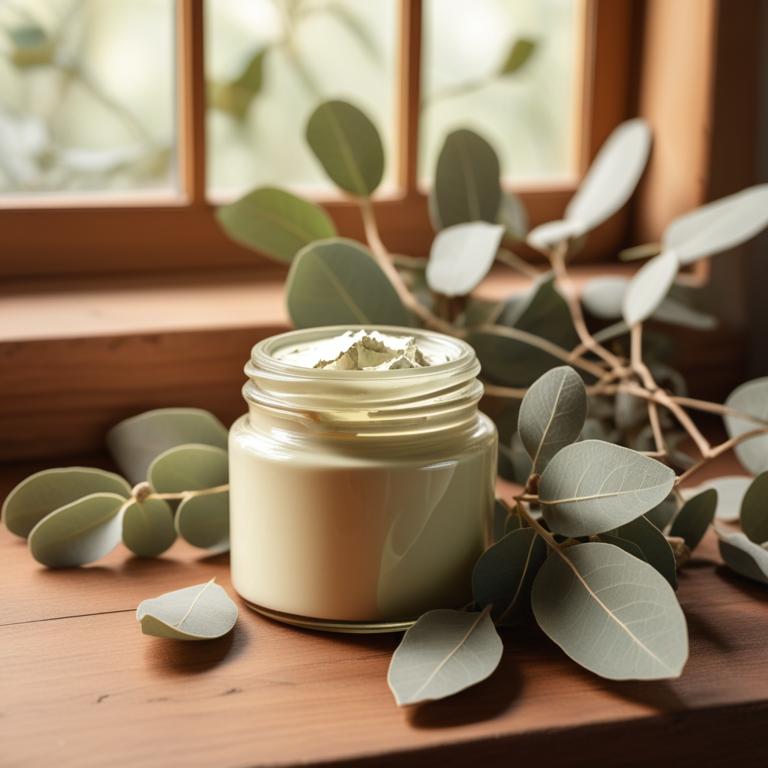
Herbal creams for Eczema are topical creams or ointments made from natural herbs and plants that help to soothe, calm, and heal the skin affected by eczema.
These creams work by reducing inflammation, promoting skin hydration, and protecting the skin from further irritation, thus providing relief from the symptoms of eczema.
Examples of herbal creams for eczema include Aloe vera gel, which cools and moisturizes the skin, Tea tree oil, which has antibacterial properties that help to prevent infection, and Chamomile oil, which has anti-inflammatory properties that reduce redness and itching.
Additionally, other herbal creams such as Calendula, Echinacea, and Oatmeal are also used to treat eczema due to their anti-inflammatory and soothing properties that help to calm and heal the skin.
According to "Holistic nursing practice", creams for eczema can be effective, such as a patented chamomile preparation, which has been shown in clinical studies to be as effective as hydrocortisone in relieving symptoms of itching and inflammation.
Below there's a list of the 13 best herbal creams for eczema.
- 1. Aloe barbadensis creams
- 2. Saponaria officinalis creams
- 3. Calendula officinalis creams
- 4. Symphytum officinale creams
- 5. Arnica montana creams
- 6. Hypericum perforatum creams
- 7. Echinacea purpurea creams
- 8. Ginkgo biloba creams
- 9. Eucalyptus globulus creams
- 10. Melaleuca alternifolia creams
- 11. Plantago lanceolata creams
- 12. Urtica dioica creams
- 13. Ammi visnaga creams
Also you may be interested in...
TODAY'S FREE BOUNDLE
Herb Drying Checklist + Herbal Tea Shopping List + Medicinal Herbs Flashcards
Enter you best email address below to receive this bundle (3 product valued $19.95) for FREE + exclusive access to The Aphotecary Letter.
$19.95 -> $0.00
1. Aloe barbadensis creams
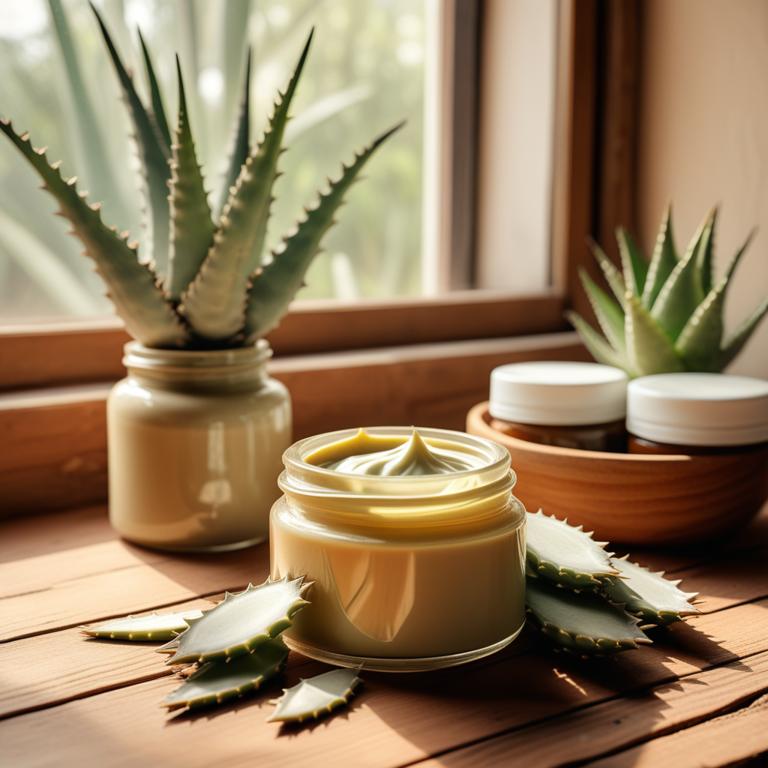
Aloe barbadensis creams are a popular herbal preparation used to treat eczema, a chronic inflammatory skin condition characterized by dry, itchy, and scaly skin.
The anti-inflammatory, soothing, and moisturizing properties of aloe vera help to calm and protect the skin, reducing redness and discomfort associated with eczema.
The bioactive constituents of aloe vera, including vitamins A, C, and E, as well as fatty acids and amino acids, work together to promote skin healing, reduce inflammation, and improve skin elasticity.
The benefits of using aloe barbadensis creams to treat eczema include reduced itching and irritation, improved skin hydration, and a decrease in the frequency and severity of eczema flare-ups.
Related Study
According to "Infectious disorders drug targets", Aloe barbadensis creams for eczema are considered a natural, safe, and effective remedy due to their potent therapeutically active properties.
2. Saponaria officinalis creams
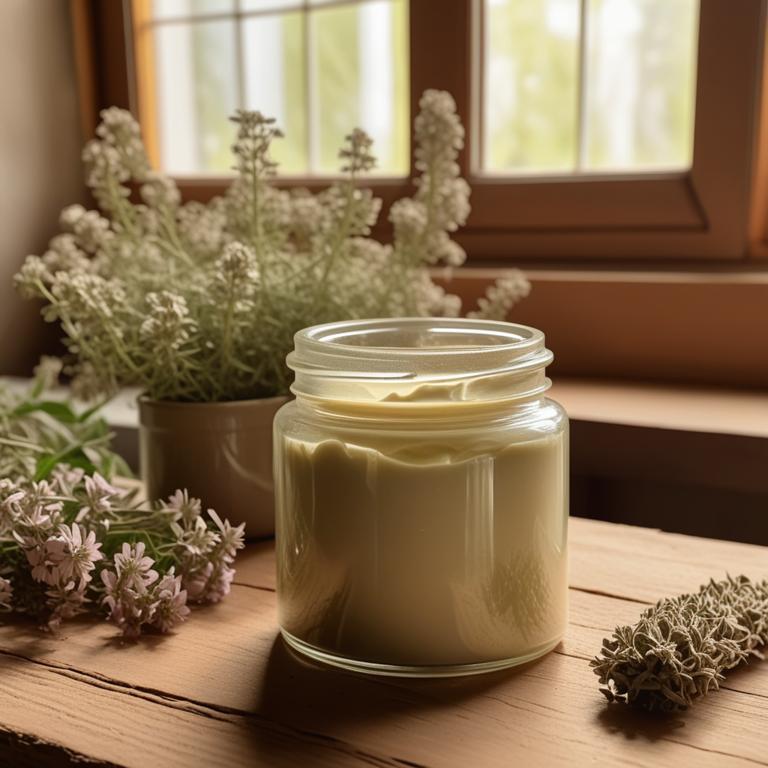
Saponaria officinalis creams have been used in traditional medicine to treat eczema, a chronic inflammatory skin condition characterized by dry, itchy, and scaly skin.
This herbal preparation helps to treat eczema by reducing inflammation, promoting skin hydration, and soothing irritation due to its anti-inflammatory and emollient properties.
The bioactive constituents of Saponaria officinalis, including flavonoids, phenolic acids, and saponins, have been shown to exhibit anti-inflammatory and antioxidant activities that contribute to its therapeutic effects.
By using Saponaria officinalis creams, individuals with eczema may experience improved skin health, reduced symptoms, and enhanced quality of life.
Related Study
According to "Evidence-based complementary and alternative medicine : eCAM", Saponaria officinalis creams for eczema may be effective as the study shows that Saponaria officinalis inhibited sebum production and had anti-inflammatory activity, which could help alleviate symptoms of eczema.
3. Calendula officinalis creams
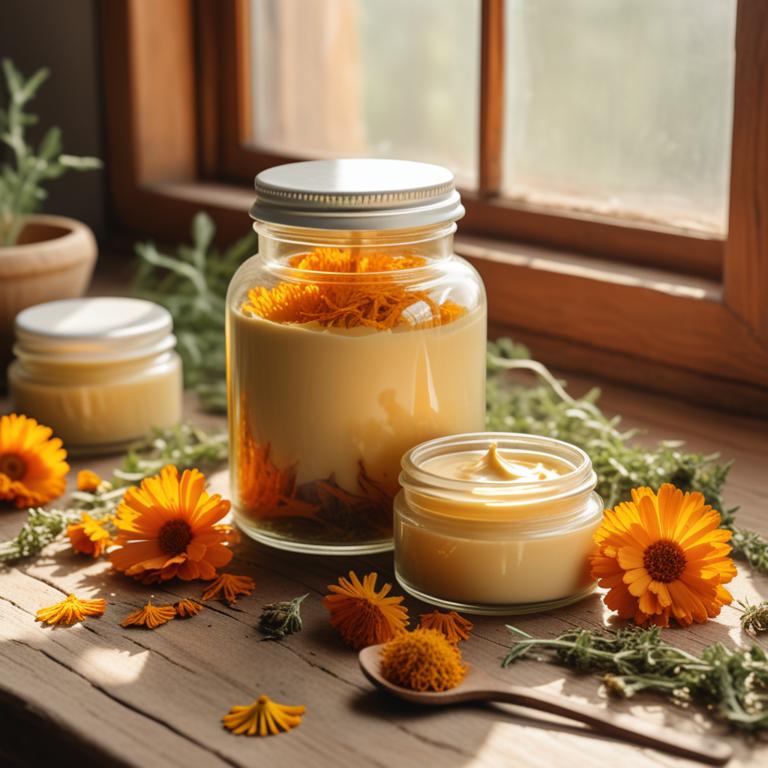
Calendula officinalis creams have been traditionally used to treat eczema, a chronic inflammatory skin condition, due to their anti-inflammatory and antimicrobial properties.
The bioactive constituents, including triterpenoids, flavonoids, and carotenoids, help to soothe and calm irritated skin, reducing redness and inflammation.
Calendula officinalis creams promote wound healing by increasing collagen synthesis and improving tissue repair, which helps to alleviate the symptoms of eczema, such as dryness and itchiness.
The benefits of using Calendula officinalis creams to treat eczema include reduced inflammation, improved skin integrity, and enhanced overall skin health, making it a popular natural remedy for this condition.
Related Study
According to "Phytomedicine : international journal of phytotherapy and phytopharmacology", Calendula officinalis creams for eczema may have anti-inflammatory effects, promoting wound healing and alleviating symptoms such as ear redness, swelling, and epidermal thickness in atopic dermatitis models, as part of a three-herbs formula with Cortex Moutan and Herba Menthae.
4. Symphytum officinale creams
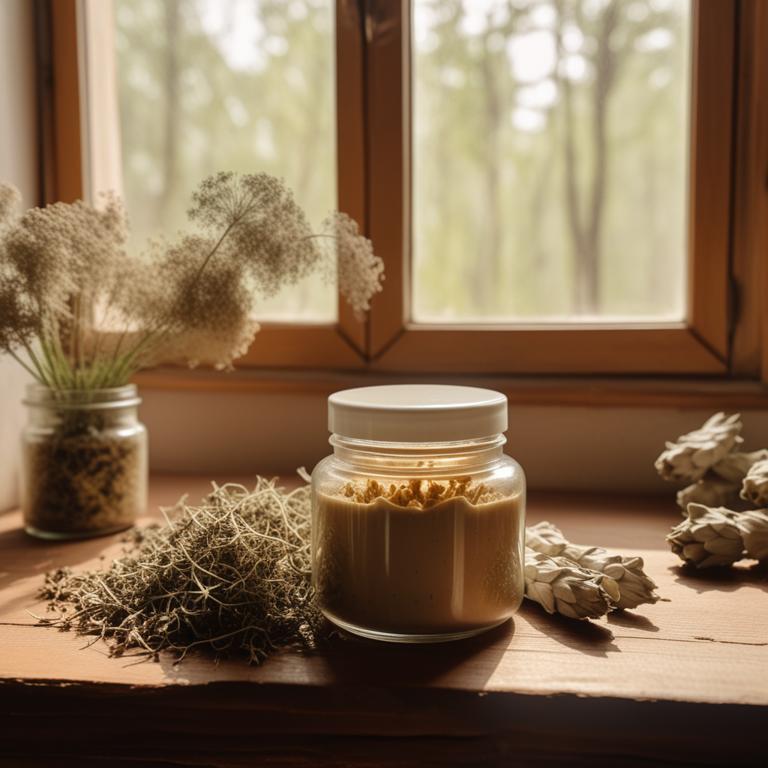
Symphytum officinale creams have been traditionally used to treat eczema due to their anti-inflammatory, antiseptic, and soothing properties.
The bioactive constituents present in these creams, such as allantoin and mucilages, help to reduce inflammation and promote the healing of skin lesions.
By forming a protective barrier on the skin's surface, these creams help to prevent further irritation and dryness, allowing the skin to recover from eczema symptoms.
The benefits of using Symphytum officinale creams to treat eczema include reduced itching, improved skin hydration, and a decrease in the severity of eczema symptoms.
Related Study
According to "Chemistry & biodiversity", Symphytum officinale creams for eczema have been found to be effective as part of the traditional wound-healing practices in southern Brazil, with scientific studies demonstrating its wound-healing effects.
5. Arnica montana creams
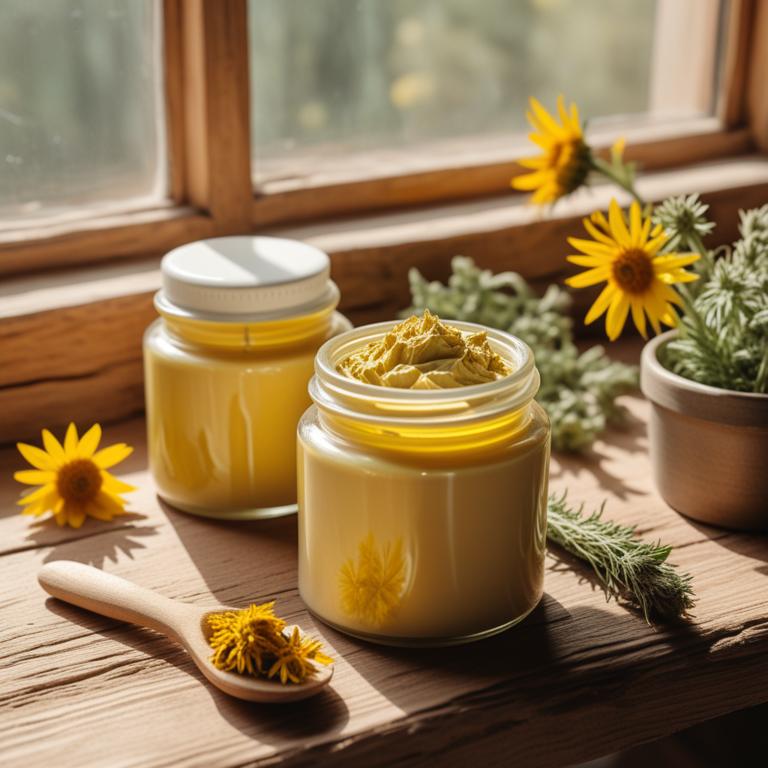
Arnica montana creams have been used to treat eczema due to their anti-inflammatory, antiseptic, and moisturizing properties, which help to soothe and calm irritated skin.
The bioactive constituents, such as flavonoids, phenolic acids, and sesquiterpene lactones, present in Arnica montana creams, possess potent antioxidant and anti-inflammatory properties that help to reduce redness and itching associated with eczema.
By reducing inflammation and promoting skin healing, Arnica montana creams provide relief from the symptoms of eczema, including dryness, itching, and skin lesions.
The benefits of using Arnica montana creams to treat eczema include improved skin hydration, reduced inflammation, and a decrease in the frequency and severity of eczema outbreaks.
6. Hypericum perforatum creams
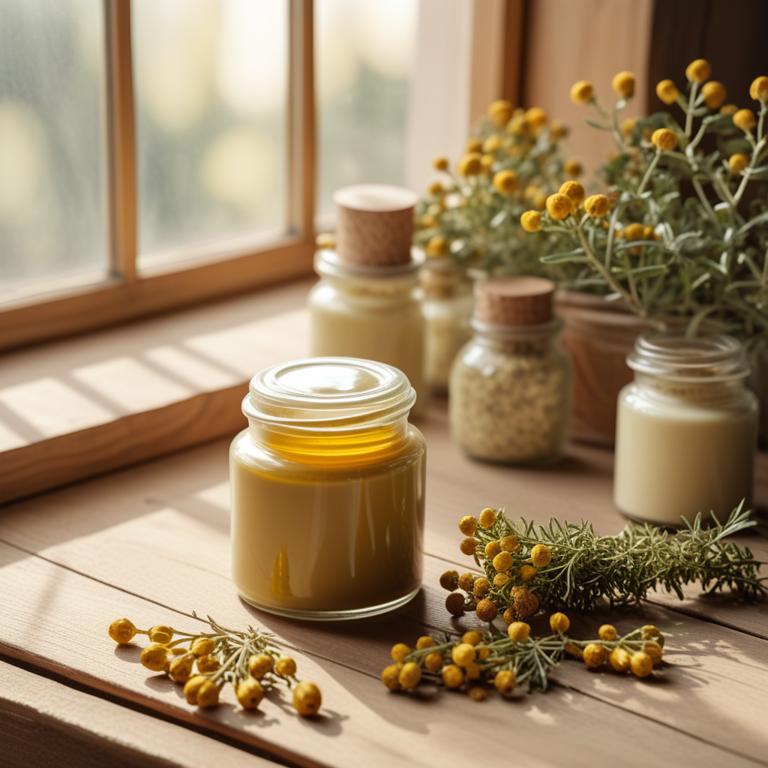
Hypericum perforatum creams, derived from the herb St. John's Wort, have been used to treat eczema due to their anti-inflammatory and immunomodulatory properties.
These creams help to treat eczema by reducing redness, itching, and swelling, while also promoting wound healing and tissue repair.
The bioactive constituents present in Hypericum perforatum creams, including hyperforin and hypericin, have been shown to exhibit potent antioxidant and anti-inflammatory activities, which contribute to their therapeutic effects.
The benefits of using Hypericum perforatum creams to treat eczema include reduced symptoms, improved skin integrity, and enhanced overall well-being.
Related Study
According to "Frontiers in pharmacology", Hypericum perforatum creams for eczema may be beneficial as it was identified as one of the most commonly used species in the treatment of skin disorders in Albania, Cyprus, Greece, and Turkey.
7. Echinacea purpurea creams
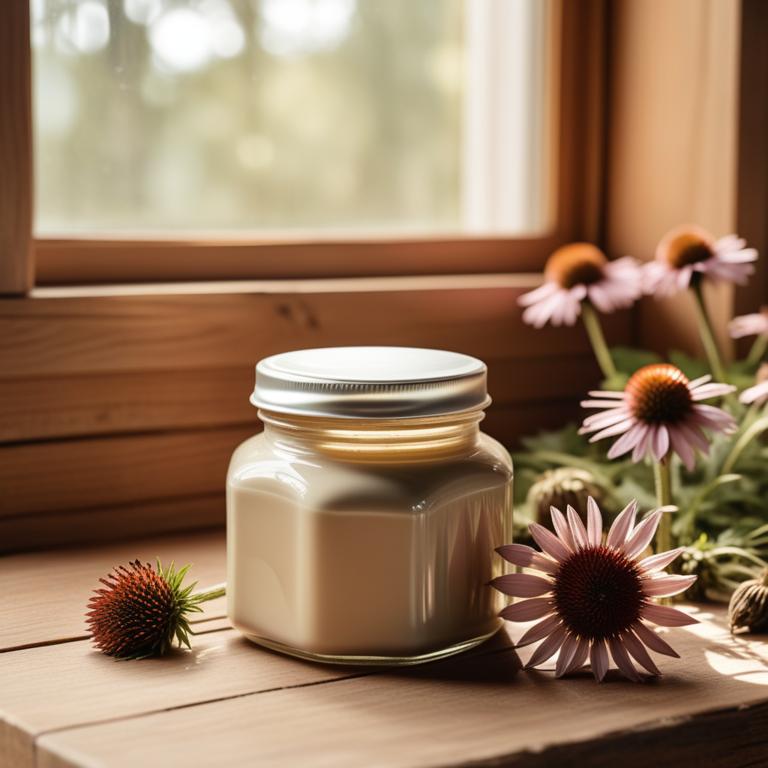
Echinacea purpurea creams have been used to treat eczema due to their anti-inflammatory properties, which help to reduce redness and swelling associated with the condition.
The creams contain bioactive constituents such as alkylamides, caffeic acid derivatives, and flavonoids that help to soothe and calm the skin, reducing itching and irritation.
By reducing inflammation and promoting wound healing, Echinacea purpurea creams can help to alleviate symptoms of eczema, such as dryness, scaling, and crust formation.
The benefits of using Echinacea purpurea creams to treat eczema include reduced severity of symptoms, improved skin health, and a reduced need for conventional medications.
8. Ginkgo biloba creams
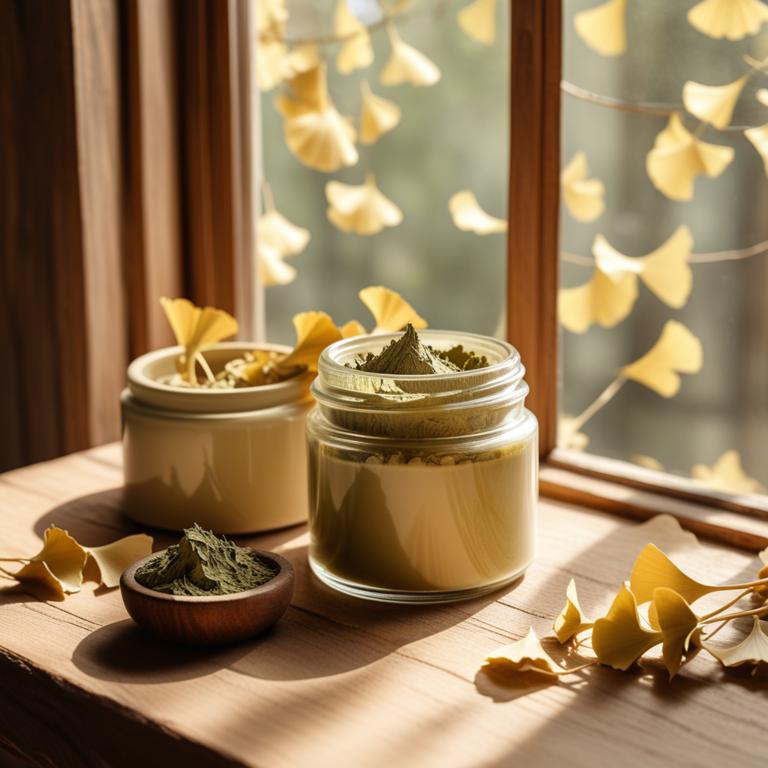
Ginkgo biloba creams have been used to treat eczema due to their anti-inflammatory, antioxidant, and immunomodulatory properties, which help to soothe and calm irritated skin.
The bioactive constituents of Ginkgo biloba, such as flavonoids, terpenoids, and bilobalide, contribute to its therapeutic effects by reducing inflammation, promoting wound healing, and modulating the immune response.
By applying Ginkgo biloba creams topically, individuals with eczema can experience relief from symptoms such as itching, redness, and dryness, and may also see improvements in skin barrier function and overall skin health.
The benefits of using Ginkgo biloba creams for eczema treatment include reduced reliance on conventional medications, improved skin condition, and a more natural approach to managing this chronic skin condition.
9. Eucalyptus globulus creams
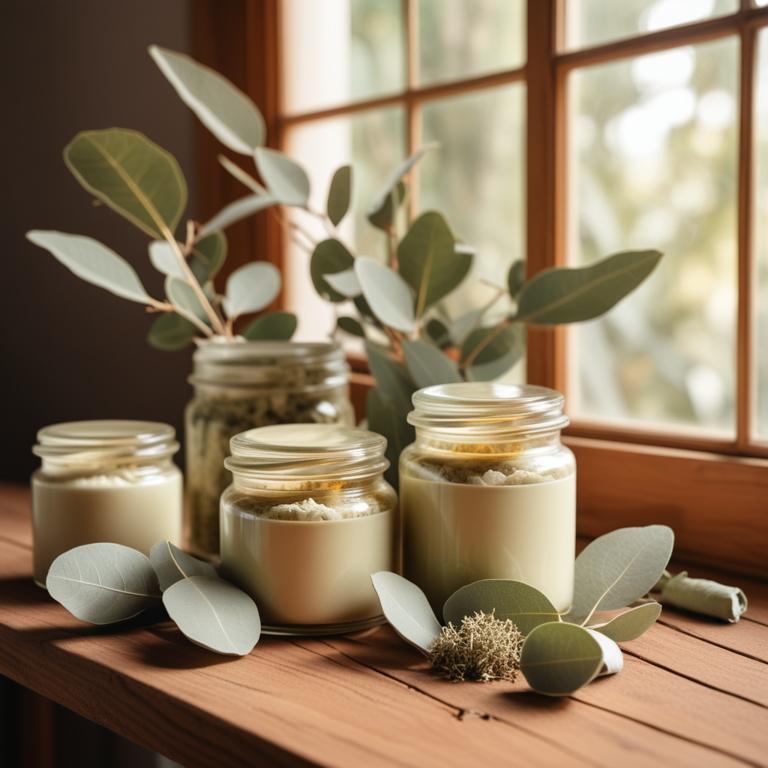
Eucalyptus globulus creams have been traditionally used to treat eczema due to their anti-inflammatory and antioxidant properties.
These creams help to soothe and calm irritated skin, reducing redness and itching associated with eczema.
The bioactive constituents present in Eucalyptus globulus, including eucalyptol and 1,8-cineole, have been shown to exhibit potent anti-inflammatory and antimicrobial activities, which contribute to their therapeutic effects.
The regular use of Eucalyptus globulus creams can provide long-term benefits in managing eczema symptoms and improving skin health.
Related Study
According to the study, Eucalyptus globulus creams for eczema are a natural and relatively lower-cost remedy with fewer side effects compared to modern and allopathic medicines.
10. Melaleuca alternifolia creams
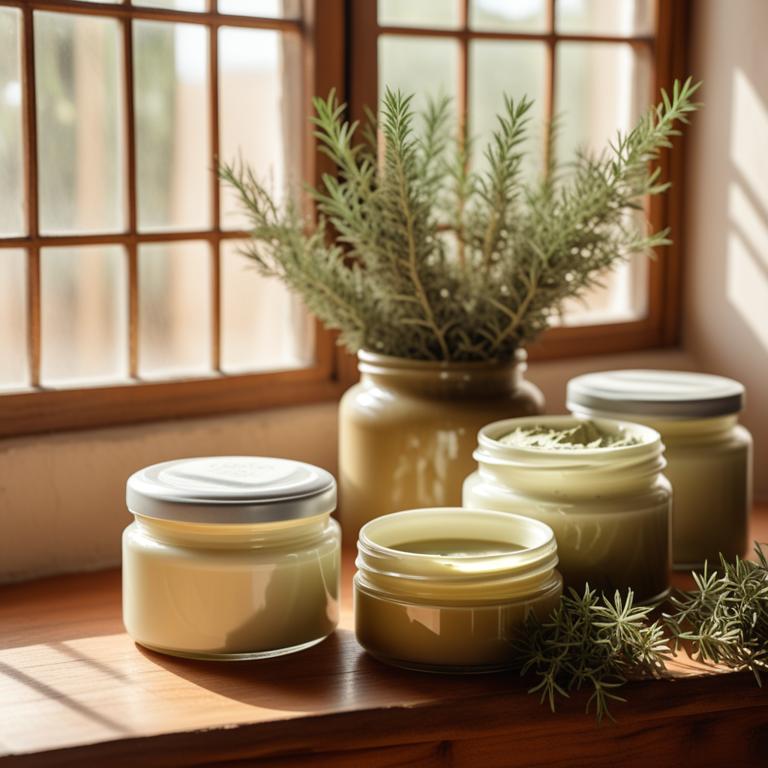
Melaleuca alternifolia creams, derived from the leaves of the tea tree, have been widely used to treat eczema due to their anti-inflammatory, antimicrobial, and antiseptic properties.
These creams help to soothe and calm the skin, reducing redness and itching associated with eczema, thereby providing relief to those affected.
The bioactive constituents of Melaleuca alternifolia, including terpinen-4-ol and cineole, contribute to its therapeutic effects, which include reducing inflammation and promoting wound healing.
Regular use of Melaleuca alternifolia creams can provide significant benefits in managing eczema, including reducing the severity of symptoms and preventing flare-ups.
Related Study
According to "Adverse drug reactions and toxicological reviews", Melaleuca alternifolia creams for eczema have been found to exhibit antifungal, antiviral, antibacterial and acaricidal activity, making them beneficial in treating skin infections such as acne, herpes and scabies.
11. Plantago lanceolata creams
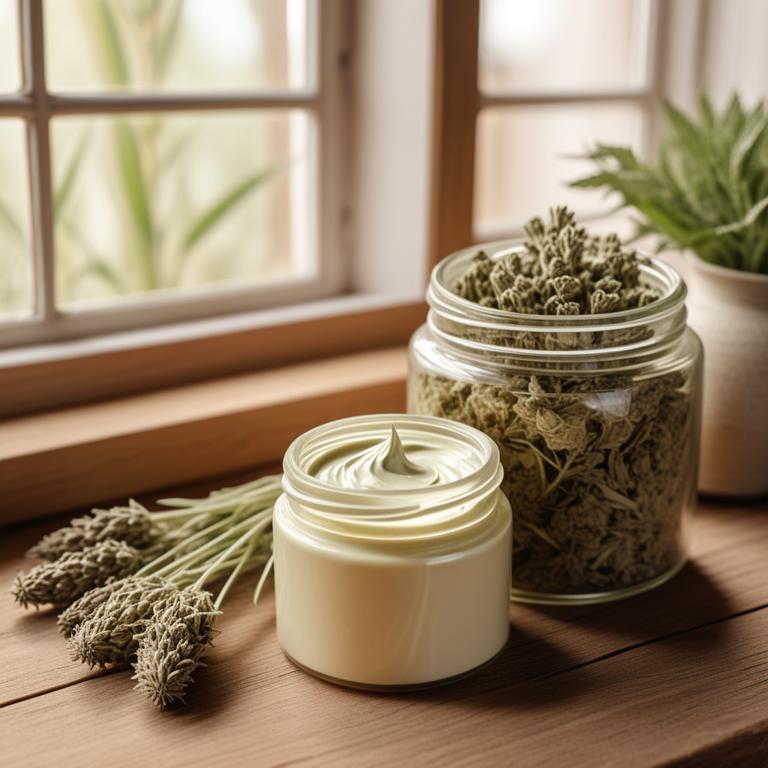
Plantago lanceolata creams have been traditionally used to treat eczema, a chronic inflammatory skin condition characterized by dry, itchy, and scaly skin.
The anti-inflammatory and antioxidant properties of Plantago lanceolata creams help to soothe and calm the skin, reducing redness and itching associated with eczema.
The bioactive constituents of Plantago lanceolata, including flavonoids, phenolic acids, and iridoid glycosides, have been found to exhibit potent anti-inflammatory and antiseptic activities, which contribute to the treatment of eczema.
By using Plantago lanceolata creams, individuals can benefit from reduced inflammation, improved skin hydration, and a decrease in the frequency and severity of eczema flare-ups.
12. Urtica dioica creams
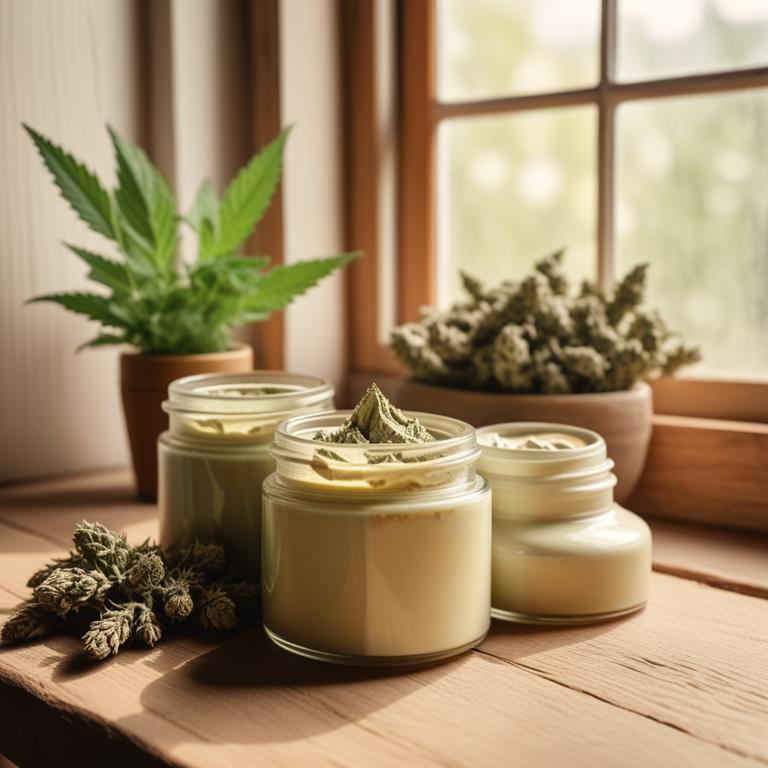
Urtica dioica creams, derived from the leaves of the stinging nettle plant, have been used to treat eczema due to their anti-inflammatory, antihistamine, and soothing properties.
These creams help to treat eczema by reducing itching and inflammation, promoting wound healing, and providing relief from skin irritation.
The bioactive constituents of Urtica dioica, including flavonoids, carotenoids, and triterpenoid saponins, play a crucial role in its therapeutic effects, exerting antioxidant and immunomodulatory activities that help to modulate the immune response and reduce inflammation.
The benefits of using Urtica dioica creams to treat eczema include reduced itching and inflammation, improved skin hydration, and enhanced skin regeneration, making it a popular natural remedy for managing eczema symptoms.
Related Study
According to "Molecules (Basel, Switzerland)", Urtica dioica creams for eczema may be beneficial due to their anti-inflammatory and antioxidant properties, which can aid in wound healing by reducing inflammation and promoting cell proliferation, migration, and healing.
13. Ammi visnaga creams
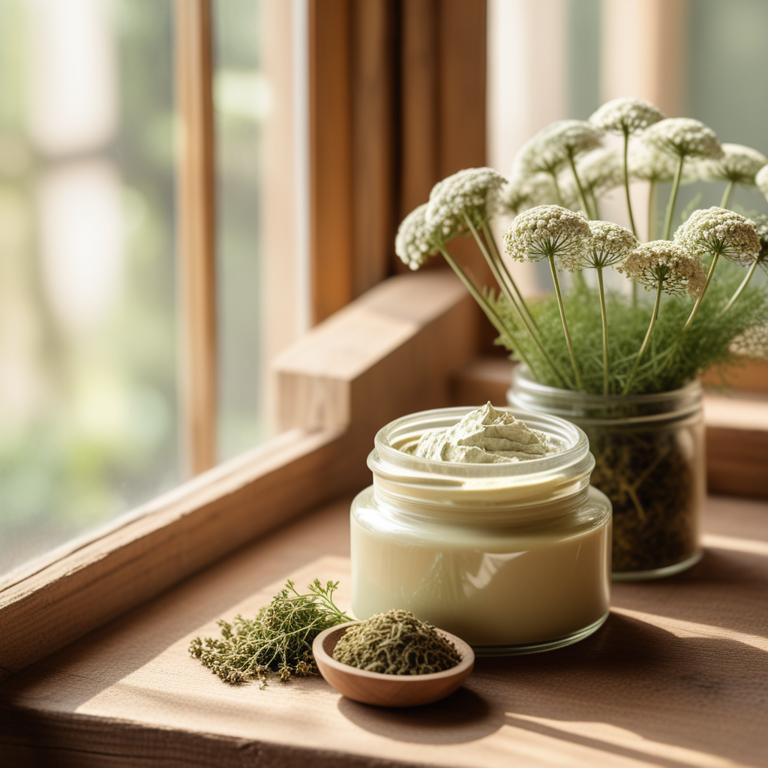
Ammi visnaga creams have been utilized traditionally to treat eczema due to their anti-inflammatory and soothing properties.
They help to reduce the symptoms of eczema by calming the skin, reducing redness and itching, and promoting healing.
The bioactive constituents of Ammi visnaga, such as sesquiterpenes and alkaloids, are responsible for its therapeutic effects, including its ability to inhibit inflammatory responses and improve skin health.
The benefits of using Ammi visnaga creams to treat eczema include reduced inflammation, improved skin hydration, and a decrease in the frequency and severity of eczema flare-ups.